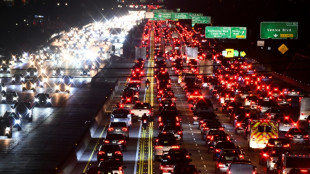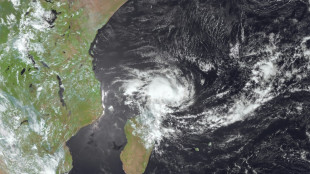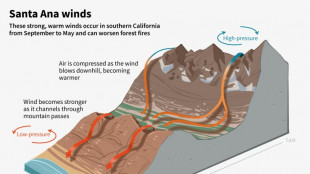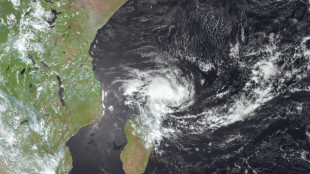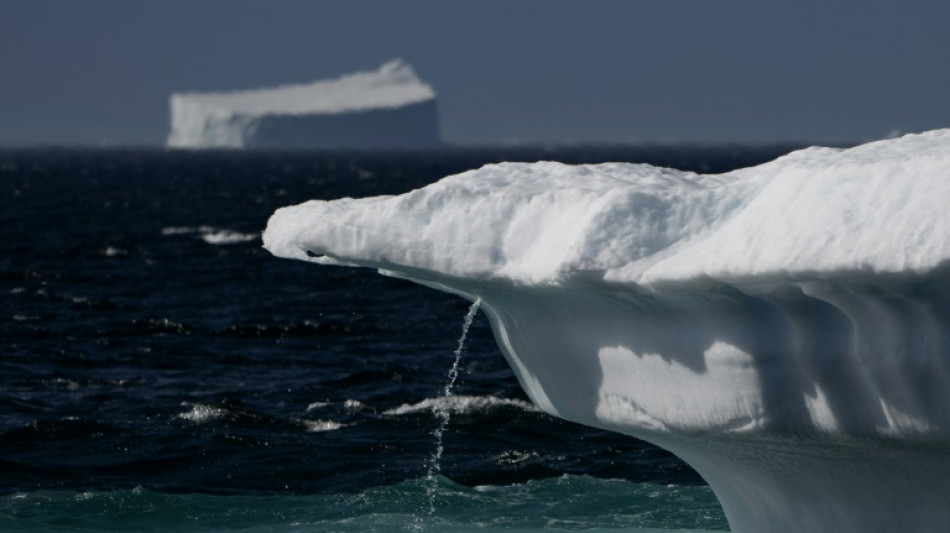
-
 Toyota arm Hino makes deal to settle emission fraud case
Toyota arm Hino makes deal to settle emission fraud case
-
Fire-wrecked Los Angeles gets a break as winds drop

-
 Superb Swiatek races into third round at Australian Open
Superb Swiatek races into third round at Australian Open
-
Biden warns of dangerous 'oligarchy' in dark farewell speech

-
 Herbicide under US scrutiny over potential Parkinson's link
Herbicide under US scrutiny over potential Parkinson's link
-
South Korea's Yoon to avoid fresh questioning after dramatic arrest

-
 Behind the Gaza deal: a US odd couple and last-minute snags
Behind the Gaza deal: a US odd couple and last-minute snags
-
Noisy racket on Australian Open 'party court' forces match move

-
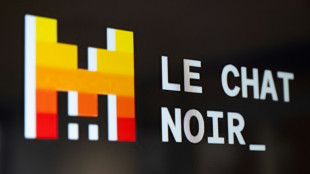 AFP strikes deal for France's Mistral AI to use news articles
AFP strikes deal for France's Mistral AI to use news articles
-
'Sensational' Arsenal back in title race: Arteta

-
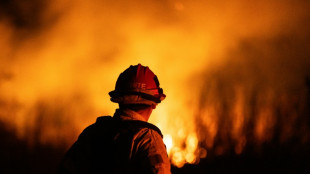 Survivors count the mental cost of Los Angeles fires
Survivors count the mental cost of Los Angeles fires
-
Arsenal reignite Premier League title charge as Isak stars again

-
 Thousands across Gaza celebrate ceasefire deal
Thousands across Gaza celebrate ceasefire deal
-
Postecoglou slams 'nowhere near good enough' Spurs after Arsenal defeat

-
 Moyes 'under no illusions' after defeat on Everton return
Moyes 'under no illusions' after defeat on Everton return
-
Arsenal reignite Premier League title hopes as Isak stars again

-
 Yamal drives dominant Barca past Betis into Copa del Rey quarters
Yamal drives dominant Barca past Betis into Copa del Rey quarters
-
Arsenal fightback sinks Spurs to ignite title bid

-
 Qatar, US announce Gaza truce, hostage release deal
Qatar, US announce Gaza truce, hostage release deal
-
US consumer inflation rises in December but underlying pressures ease

-
 McGregor accused of sexual assault in civil suit
McGregor accused of sexual assault in civil suit
-
Inter's title defence slowed by draw with spirited Bologna

-
 Isak fires Newcastle into Premier League top four, Moyes misery
Isak fires Newcastle into Premier League top four, Moyes misery
-
Sane hits brace as Bayern thump Hoffenheim

-
 Aston Villa ruin Moyes' Everton return
Aston Villa ruin Moyes' Everton return
-
Norman replaced as CEO of LIV Golf

-
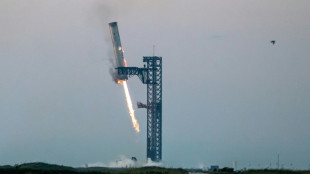 SpaceX delays latest Starship megarocket test to Thursday
SpaceX delays latest Starship megarocket test to Thursday
-
Quake-stricken Vanuatu heads to polls in snap election

-
 Qatar, US announce Gaza truce, hostage release deal agreed
Qatar, US announce Gaza truce, hostage release deal agreed
-
Galaxy sign Zanka from Anderlecht

-
 Police probe abuse of Havertz's wife after Arsenal star's woes
Police probe abuse of Havertz's wife after Arsenal star's woes
-
Drake files defamation suit against Universal over Kendrick Lamar track

-
 Qatar PM says Gaza truce, hostage release deal agreed
Qatar PM says Gaza truce, hostage release deal agreed
-
US firms concerned about Trump tariff, immigration plans: Fed

-
 Yellen warns against extending Trump's first-term US tax cuts
Yellen warns against extending Trump's first-term US tax cuts
-
Biden hails Gaza deal, says worked with Trump

-
 US Supreme Court weighs Texas age-check for porn sites
US Supreme Court weighs Texas age-check for porn sites
-
Brad Pitt isn't messaging you, rep warns, after adoring fan scammed

-
 Trump's Energy Dept pick wants to develop renewables... and fossil fuels
Trump's Energy Dept pick wants to develop renewables... and fossil fuels
-
Cuba starts freeing prisoners after US terror list deal

-
 Fire-wrecked Los Angeles waits for winds to drop
Fire-wrecked Los Angeles waits for winds to drop
-
Prince William makes pub visit to meet fellow Aston Villa fans

-
 Mediators announce Gaza truce, but Israel says some points 'uresolved'
Mediators announce Gaza truce, but Israel says some points 'uresolved'
-
Van Dijk laughs off talk of Liverpool wobble after more dropped points

-
 Rubio vows to confront 'dangerous' China, deter Taiwan invasion
Rubio vows to confront 'dangerous' China, deter Taiwan invasion
-
Man City's Premier League title defence is over: Foden

-
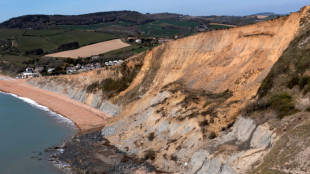 Society centred around women in UK during Iron Age: scientists
Society centred around women in UK during Iron Age: scientists
-
UK government bans 'zombie drug' xylazine

-
 Israel, Hamas agree deal for Gaza truce, hostage release: source briefed on talks
Israel, Hamas agree deal for Gaza truce, hostage release: source briefed on talks
-
Kosovo raids Serbia-linked offices as tense elections loom


Greenland's Inuit falling through thin ice of climate change
The thunder of icebergs crashing into the turquoise sea of eastern Greenland is the sound of one of the planet's most important ecosystems teetering on the edge of collapse.
As the ice melts, the hunters in the village of Ittoqqortoormiit -- home to one of the last Inuit hunting communities -- worry where they will get water.
Greenland's ice sheets may hold one 12th of the world's fresh water -- enough to raise the sea level up seven metres (23 feet) if they were to melt -- but climate change is already threatening the village's supply.
Cold winters, robust ice and snow are vital for both food and water for the Inuit of the Scoresby Sound, who live deeply intertwined with the natural world.
But temperatures in the Arctic are rising up to four times faster than the global average.
On a headland of barren tundra some 500 kilometres (310 miles) from the nearest settlement, Ittoqqortoormiit's 350 people get their fresh water from a river fed by a glacier that is melting fast.
"In a few years it's gone," said Erling Rasmussen of the local utility company Nukissiorfiit.
"The glaciers are smaller and smaller," he said after the warmest July ever recorded at Summit Camp atop Greenland's ice sheet.
"In the future we may have to get drinking water from the ocean," Rasmussen added.
With melting ice for water costly and unreliable, other isolated Greenland communities are already turning to desalination.
- Thinning ice and hungry bears -
The Scoresby Sound -- the biggest fjord system on the planet -- is only free of ice for a month a year, with the locals within it relying on the meat provided by the hunters to survive the long polar night.
Cargo ships only get to Ittoqqortoormiit, at the mouth of the fjords, once a year. The colossal drifting icebergs crowding the narrow passages are a challenge to even the most seasoned sailors.
"We need our own meat. We cannot only buy Danish frozen meat," said Jorgen Juulut Danielsen, a teacher and the village's former mayor.
But as rising temperatures weaken the ice, traditional seal hunting by stalking their breathing holes on the ice has become progressively more difficult and dangerous for the local hunters.
Peter Arqe-Hammeken almost lost his wife and two children when the ice gave way under their snowmobile when they were out hunting in January, when the temperature was 20 below zero Centigrade (-4 Fahrenheit).
His wife ruptured her biceps getting the oldest child, aged 12, from the water.
Less snow also makes it difficult for the dog sleds the hunters rely on.
And it is not only humans who are facing challenges. The weakening sea ice is also increasingly pushing hungry polar bears to search for food within the settlement, locals report.
"They come to land near the village, so people have to be careful," Danielsen said.
- Polar cod in question -
Framed by the rust-coloured mountains of Rode Fjord, the breathtaking blue walls of glaciers that rise from the sea in the Inuit hunting grounds are vital to the ecosystem.
The extreme conditions mean the fjord is among the least studied places on the planet, with parts of it blanketed in icebergs.
But after five years of meticulous planning, the French scientific initiative Greenlandia is rushing to document this front line of climate change before it is too late.
"You hear about global warming, but here you see it," expedition leader Vincent Hilaire told AFP on board their sailing boat, Kamak.
Caroline Bouchard, senior scientist at the Greenland Climate Research Centre in Nuuk, fears that the receding glaciers will make the Scoresby Sound "a less rich ecosystem".
Glaciers that terminate in the sea trigger "upwelling" -- pushing the nutrient-rich water from the bottom of the fjord upwards with their cold meltwater.
But as the glaciers melt, they recede inland and the ecosystem loses these nutrients for the plankton that feed the polar cod, which in turn feed the seal and bear that the Inuit of Ittoqqortoormiit rely on.
- Catastrophic consequences -
On the deck of Kamak, Bouchard checked the contents of her nets, as the bright Arctic sunlight illuminated the myriad of sealife on her Petri dish.
Among the plankton and krill, the number of cod larvae in her samples has dropped from 53 last year to only eight this summer.
While Bouchard said thorough analysis is required to determine the reasons for the decline, the figures are unexpectedly low.
"If you suddenly crash the polar cod population, what's going to happen with the ring seal, what's going to happen with the polar bear?" she said.
The potential collapse of polar cod could have catastrophic consequences for the local population that relies on both for their food from hunting.
"It's not just Ittoqqortoormiit that we lose. It's a unique way of life," Bouchard said.
- Red algae melting glaciers -
New research conducted on the Greenlandia expedition are grim portents for the future of the glaciers. In the warming fjord, a reddish hue is spreading across the ice that has been dubbed "blood snow".
It is from a snow algae only formally discovered in 2019, Sanguina nivaloides, which develops a red or orange pigment to save it from the sun. But the pigment also lowers the reflectivity of the snow and speeds up melting.
Once aware of it, even an inexperienced observer can see how the crimson veil blankets extensive sections of the snow in the fjord.
Researchers say it is responsible for 12 percent of the total annual surface melt of the Greenland ice sheet, a "colossal" 32 billion tons of ice.
With the algae seemingly spreading, scientists say we face being caught in a vicious circle -- rising temperatures speeding glacier melt and promoting the growth of the algae which further accelerates the melting.
- 'We need to wake up' -
"We are facing a catastrophe," said Eric Marechal, the director of research at the French National Centre for Scientific Research (CNRS).
To scientifically demonstrate a phenomonen on the scale of the algae, 30 years of data is needed, he said, a luxury the world might not have.
"The risk we have here is the disappearance of the complete ecosystem," he said.
"Can this process be stopped in time? I don't think so."
Approaching the towering glacier cascading down a steep valley in Vikingebugt, expedition leader Hilaire pointed his rifle to a trail left in the mud by a polar bear.
For Marechal, making the challenging trek into bear country is a risk worth taking to sample the red snow draping the glacier.
His team at CNRS and the Snow Research Centre of Meteo-France are rushing to collect field samples in Greenland and retrieve historical satellite data to gain a deeper understanding of the algae's behaviour.
"We need to wake up and address this question seriously," Marechal said. "What is happening in Greenland (is key to) the disruption of the global water cycle, and the major melting that is causing the oceans to rise."
P.M.Smith--AMWN
